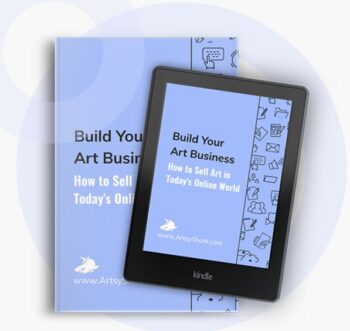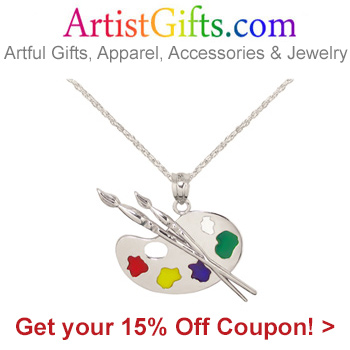By Carolyn Edlund
Artsy Shark asked four industry experts, “What do you believe is essential for artists to know before they pursue art licensing?”
Joan Beiriger
“Before licensing your art, you need to know if your art is licensable. You should have plenty of art composed of images and themes that consumers want to see on products. You should have at least 12 images to start but more than 20 is better. Successful licensed artists have hundreds of licensable images. To find out if your art is licensable, get opinions from art licensing experts such as licensed artists and art licensing consultants.”
Lance Klass
“Patience! It can take many months, even several years, to get your feet on the ground in this industry. You’ll need to begin creating strong cooperative relationships with the right people at companies that depend upon artists like you for compelling artwork for their products. You’ll want them to know to contact you when they have new art needs, and you’ll need an idea of their design approval schedules so you can get likely images to them before they’ve closed their lines.
All of this takes time. Think of art licensing as a long runway that continues to grow in length. The more people and companies you get to know, the more successes you have, and the more you develop your craft.”
Kate Harper
I think artist need to know these digital skills:
1) know how to use photoshop even at the basic level
2) understand how to resize an image in inches and pixels
3) Understand how to send a low res jpg (200-500 resolution) through email.
4) Learn how to send a high res psd file through a FTP site like You Send It (free)
I find that this is what most licensees expect and will allow you to stand out when you can get a quick edit and turn around to them in 10 minutes (such as a size change.)
Tara Reed
Not only do you need to be able to handle rejection – “no, this isn’t what we are looking for”, you also need to be able to handle constructive criticism “this could be better if you changed x, y or z” as well as no response at all.
One of the things I hear new artists complain about the most is how frustrating it is to not hear back after submitting art to a manufacturer or agent. Art licensing is a competitive business and agents and manufacturers are bombarded with art submissions on a daily basis. Even though it might seem that sending a simple “no thank” email would take no time at all, when it becomes tens to hundreds a month, that time adds up. Some people are simply so overwhelmed with all they have to tend to in their jobs that they communicate only with the artists whose work they are interested in. Others try to send a response to everyone who submits work.
In art licensing, you have to have the internal will to keep going, keep improving and keep creating no matter what response you get. Without a thick skin and tenacity for this business, it can be easy begin to doubt yourself. I have seen artists get so emotionally involved in being angry at a person who didn’t respond that it almost consumes them. Focus on the wins and let the rest go – life is too short and holding grudges isn’t good for your creative flow!






Great advice, Tara. I am trying to “catch up” with myself right now, but it’s a great feeling to know that I am finally doing what I want – for me – and hopefully for others. You always have good advice.
Yup, I was in the entertainment industry for years and rejection is a part of it. After a while you just don’t feel it anymore but that takes understanding that it’s probably not YOU. It may just be that what YOU have to offer, is not what THEY need today. Maybe they will need you next week. 🙂